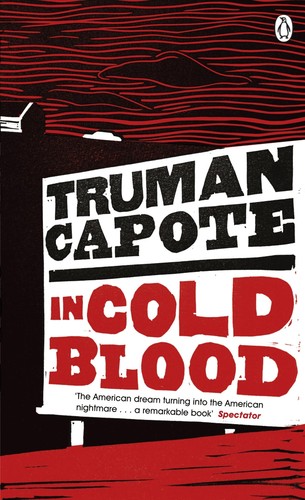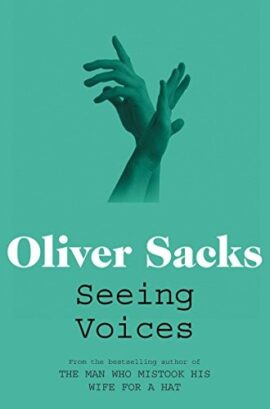In Cold Blood
2.300,00 د.ج
‘Dick became convinced that Perry was that rarity, ‘a natural killer’- absolutely sane, but conscienceless, and capable of dealing, with or without motive, the coldest-blooded deathblows’
On November 15, 1959, in the small town of Holcomb, Kansas, a wealthy farmer, his wife and their two young children were found brutally murdered. Blood all over the walls, the telephone lines cut, and only a few dollars stolen. Heading up the investigation is Agent Al Dewey, but all he has are two footprints, four bodies, and a whole lot of questions.
Truman Capote’s detailed reconstruction of the events and consequences of that fateful night, In Cold Blood is a chilling, gripping mix of journalistic skill and imaginative power.
‘Dick became convinced that Perry was that rarity, ‘a natural killer’- absolutely sane, but conscienceless, and capable of dealing, with or without motive, the coldest-blooded deathblows’
On November 15, 1959, in the small town of Holcomb, Kansas, a wealthy farmer, his wife and their two young children were found brutally murdered. Blood all over the walls, the telephone lines cut, and only a few dollars stolen. Heading up the investigation is Agent Al Dewey, but all he has are two footprints, four bodies, and a whole lot of questions.
Truman Capote’s detailed reconstruction of the events and consequences of that fateful night, In Cold Blood is a chilling, gripping mix of journalistic skill and imaginative power.
| Editeur |
|---|
Produits similaires
In Cold Blood
An alternate cover of this ISBN can be found here.
An Anthropologist on Mars
We Should All Be Feminists
What does “feminism” mean today? That is the question at the heart of We Should All Be Feminists, a personal, eloquently-argued essay – adapted from her much-viewed Tedx talk of the same name – by Chimamanda Ngozi Adichie, the award-winning author of ‘Americanah’ and ‘Half of a Yellow Sun’. With humour and levity, here Adichie offers readers a unique definition of feminism for the twenty-first century – one rooted in inclusion and awareness. She shines a light not only on blatant discrimination, but also the more insidious, institutional behaviours that marginalise women around the world, in order to help readers of all walks of life better understand the often masked realities of sexual politics. Throughout, she draws extensively on her own experiences – in the U.S., in her native Nigeria – offering an artfully nuanced explanation of why the gender divide is harmful for women and men, alike. Argued in the same observant, witty and clever prose that has made Adichie a best-selling novelist, here is one remarkable author’s exploration of what it means to be a woman today – and an of-the-moment rallying cry for why we should all be feminists.
A Higher Loyalty: Truth, Lies, and Leadership
Seeing Voices: A Journey into the World of the Deaf
The Man Who Mistook His Wife for a Hat
If a man has lost a leg or an eye, he knows he has lost a leg or an eye; but if he has lost a self – himself – he cannot know it, because he is no longer there to know it.
In this extraordinary book, Dr. Oliver Sacks recounts the stories of patients struggling to adapt to often bizarre worlds of neurological disorder. Here are people who can no longer recognize everyday objects or those they love; who are stricken with violent tics or shout involuntary obscenities, and yet are gifted with unusually acute artistic or mathematical talents. If sometimes beyond our surface comprehension, these brilliant tales illuminate what it means to be human.
A provocative exploration of the mysteries of the human mind, The Man Who Mistook His Wife for a Hat is a million-copy bestseller by the twentieth century's greatest neurologist.
Part of the Picador Collection, a series showcasing the best of modern literature.
Man’s Search For Meaning: The classic tribute to hope from the Holocaust
'A book to read, to cherish, to debate, and one that will ultimately keep the memories of the victims alive' John Boyne, author of The Boy in the Striped Pyjamas
A prominent Viennese psychiatrist before the war, Viktor Frankl was uniquely able to observe the way that both he and others in Auschwitz coped (or didn't) with the experience. He noticed that it was the men who comforted others and who gave away their last piece of bread who survived the longest - and who offered proof that everything can be taken away from us except the ability to choose our attitude in any given set of circumstances. The sort of person the concentration camp prisoner became was the result of an inner decision and not of camp influences alone. Frankl came to believe man's deepest desire is to search for meaning and purpose. This outstanding work offers us all a way to transcend suffering and find significance in the art of living.










